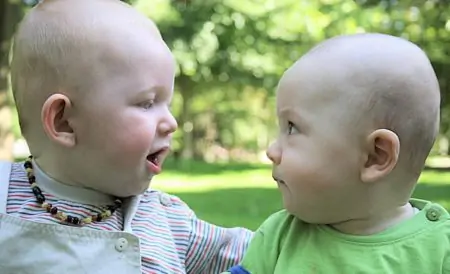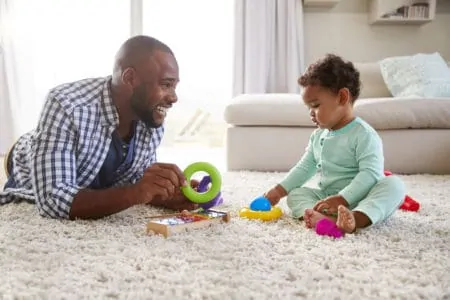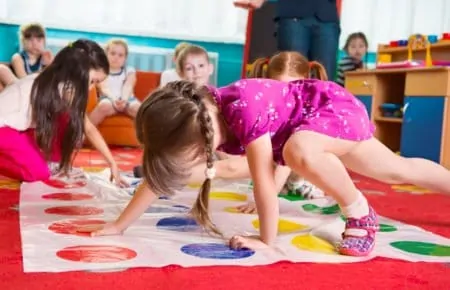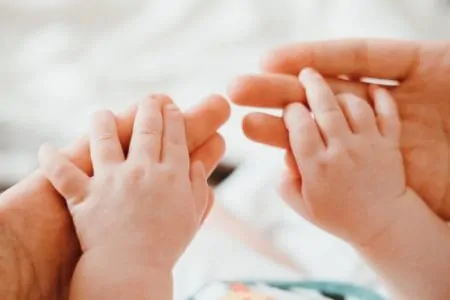“How can I get my toddler to talk?” is the number one question we hear from worried parents. You aren’t alone in this.
We have dug into clinical research and speech therapy techniques to bring you practical advice. We will cover evidence-based strategies to get the conversation flowing and help you spot when it might be time to call a pro.
Let’s take the pressure off and get those words moving.
Key Takeaways
- Most toddlers say their first words around 12 months and have about 10 words by 18 months.
- Use “communication temptations” (like putting toys out of reach) to motivate your child to ask for help.
- Narrate your day and read interactively to expose your child to more language.
- If your child isn’t using at least 20 words by 20 months, consult a speech-language pathologist.
How to Get My Toddler to Talk
Understanding the Milestones
Encouraging speech is a marathon, not a sprint. Consistency is your best friend here. By their first birthday, most toddlers have one or two consistent words, usually “mama” or “dada.”
Around 15 months, they might add a few more words and start pointing at things they want. This pointing is a huge precursor to speech. By 18 months, many toddlers have a vocabulary of at least six to ten words and start echoing what you say.
Between 18 months and age two, language usually explodes. By their second birthday, you can typically expect around 50 individual words and simple two-word phrases like “more juice.”
Don’t worry if you hear a lot of babble that sounds like a conversation but makes no sense. We call this “jargon,” and it is a great sign. By age three, speech clarity usually hits around 75 percent, reaching near 100 percent by age four or five (1).
1. Set the Stage for Speech
One of the best ways to get a toddler talking is to create a need for it. Speech therapists call these “communication temptations.” If your child has everything they need right in front of them, they don’t need to ask for it.
Start by placing a favorite toy in sight but out of reach. Wait for them to notice it. When they reach or whine for it, use that moment.
If they point, label it for them: “Do you want the red car? Here is the red car.” This teaches them that words get results.
You can also try “playing dumb.” If you know they want a snack, don’t just hand it over. Wait for a sound or a gesture. If they usually point at the yogurt, hold it up and ask, “Yogurt? You want yogurt?”
Rearrange the environment to spark curiosity. Move toys to high shelves or inside clear containers they can’t open. Then, wait for them to come to you for help.
When using puzzles or toys with pieces (like Mr. Potato Head), hold onto the pieces. Give them one only after they interact with you, whether by looking at you, pointing, or making a sound.
2. Be Forgetful on Purpose
This is a fun one. Be the “silly parent” who forgets how things work. It engages their brain and boosts their confidence when they “correct” you.
During routines, mix things up. Try to put their sock on their hand or their shoe on before their pants.
Pause and let them catch the mistake. If they laugh or point, say, “Silly mommy! Socks go on feet!”
If they miss it, gently point it out yourself: “Wait, where are your pants? Did I forget?” It turns a boring routine into a language game.
3. Expand on Their Words
Meet your child where they are and gently nudge them forward. The goal is to be one step ahead of them, not five.
If they say one word, you say two. If they point to a truck and say “truck,” you say, “Yes, big truck” or “Blue truck.”
This is called “expansion.” You acknowledge their communication and validate it, but you also show them how to make the sentence longer. Keep your additions simple and punchy.
4. Be the Narrator
Imagine you are a sportscaster for your child’s life. Narrate what they are doing while they do it. This is often called “parallel talk.”
If they are playing with blocks, say, “You are stacking the blocks. Up, up, up! Oh no, crash! They fell down.”
Use specific nouns and verbs. Instead of saying “Put it there,” say “Put the sheep in the barn.”
This bathes your child in language without forcing them to perform. It takes the pressure off. Just remember to follow their lead; talk about what they are interested in, not what you want them to look at.
5. Use the “Wait” Technique
As parents, we often talk too much and too fast. We ask a question and immediately answer it.
Try the “Wait 10” rule. Ask a question or make a comment, look at your child expectantly, and count to ten in your head.
Silence can feel awkward, but your toddler needs that processing time to find their words. If you jump in too soon, you steal their turn. Give them space to respond, even if it is just a clear look or a gesture.
6. Keep It Positive
Correction kills confidence. If your toddler says “el-pant” for elephant, don’t say, “No, it’s elephant.”
Instead, just repeat it back correctly with enthusiasm: “Yes! A big elephant!”
Label your praise, too. Instead of a generic “Good job,” try, “Good job cleaning up blocks” or “Nice job using your words.” This reinforces exactly what they did right.
7. Focus on Interaction (30 Minutes a Day)
Life is busy, but try to carve out 30 minutes of uninterrupted, phone-free floor time daily.
During this time, let your child lead the play. If they want to bang a spoon on a pot, grab another spoon and join in. Imitate their sounds and actions. When you copy them, it shows them their voice matters, and they are more likely to copy you in return.
8. Read Interactively
Reading helps, but passive listening isn’t enough. Engage in “dialogic reading.”
Don’t just read the text; talk about the pictures. Ask questions like, “Where is the doggy?” or “What is the bear eating?”
If they point, label it. If they can’t answer, answer it yourself after a pause. Make reading a conversation, not a lecture.
Although it may seem odd to read books to an infant or toddler at such a young age, it stimulates the understanding of language. Research shows that the speech and language skills of children who are read to far exceed those of children with limited exposure (2).
Editor's Note:
Dr. Leah Alexander, MD, FAAPWhat Is a Late Talker?
A “late talker” is generally defined as a child between 18 and 35 months who understands language (receptive language) but has a limited spoken vocabulary (expressive language) (3).
Expressive language is about the words they use, not perfect pronunciation. “Baba” for bottle counts as a word.
Receptive language is what they understand. If you say, “Go get your shoes,” and they run to the hallway to grab them, their receptive skills are likely on track.
If a toddler understands well but isn’t speaking, they are a classic late talker. However, if they also struggle to understand instructions or have delays in walking or motor skills, a pediatrician will want to rule out other issues, such as hearing loss or autism (4).
When I see patients with speech delay, my first recommendation is to have a hearing evaluation. If hearing is impaired, toddlers cannot properly learn and imitate language sounds. Because most toddlers are developmentally unable to do the same hearing tests as older children, I typically refer them to an audiologist or otolaryngologist for a more age-appropriate test. Depending on the test results, hearing devices and/or speech therapy may be necessary.As for signs of autism, I typically see more than just delayed speech. There are often repetitive behaviors, or the child is easily upset by very minor things. If autism is suspected, an evaluation by a developmental pediatrician is helpful (5).
Editor's Note:
Dr. Leah Alexander, MD, FAAPCommon Timelines
Babies usually drop their first real word between 8 and 15 months. By 18 months, they should be learning roughly ten new words a month (6).
Around 18 to 20 months, many kids hit a “language explosion” where they learn new words almost daily.
Remember, these milestones are averages. Every child is unique. Focus more on steady progress and their intent to communicate rather than hitting an exact date on the calendar.
How Common Are Late Talkers?
It is more common than you think. Roughly one in five children are considered late talkers (7). Boys are also three times more likely to be late talkers than girls (8).
Many of these children are “late bloomers” who catch up on their own by kindergarten (9).
However, “wait and see” isn’t always the best strategy. Early intervention is free in many places and highly effective. If your gut says something is off, get it checked.
When to See a Specialist
You should consult a speech-language pathologist (SLP) or your pediatrician if:
- By 12 months: They aren’t using gestures like pointing or waving bye-bye.
- By 18 months: They prefer gestures over vocalizations to communicate.
- By 20 months: They use fewer than 20 words (nouns, verbs, or adjectives).
- By 24 months: They aren’t using at least 50 words or combining two words together (“more milk”).
What About Bilingual Toddlers?
Parents often worry that speaking two languages confuses toddlers. The research says otherwise. Being bilingual does not cause speech delays (10).
A bilingual child might split their total vocabulary between two languages, but the total number of words usually matches that of a monolingual child.
Some of the parents I see in my practice who have bilingual toddlers express concern about delayed speech. I reassure them that the “total number of words” at their developmental stage is more important than which words are spoken in each language. Most toddlers adapt well to learning more than one language. They even seem to know the correct language to speak for different people. For example, if the parents speak English and a grandparent speaks Spanish, the child will only speak Spanish to this grandparent (11).
Editor's Note:
Dr. Leah Alexander, MD, FAAPWhat matters is exposure. Talk to your child in the language you are most comfortable and fluent in. The rich, complex input they get from you is more valuable than simple words in a language you aren’t fluent in.
Don’t Lose A Language




















